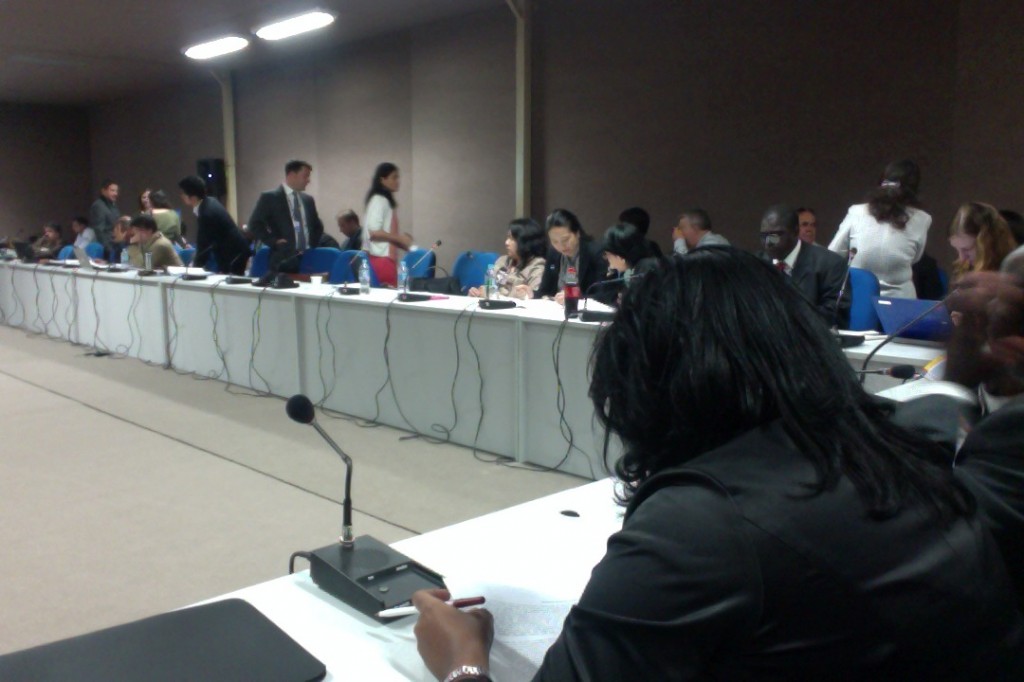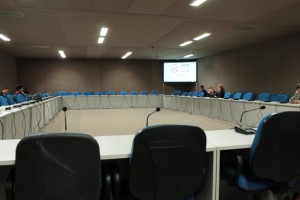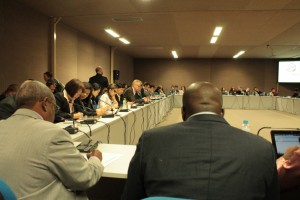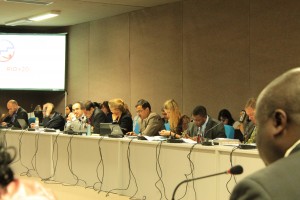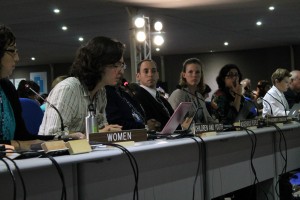by Maria Alejandra Escalante
If I were a delegate at the UN Conference on Sustainable Development, I would not be the kind of delegate I saw at the negotiations on Sustainable Consumption and Production, Water and Climate Change during Prepcom III. I would not be like them because they induce morbidity, disengagement, lethargy and utter silence. A silence that betrays the people these delegates are supposed to be representing. People who, in the miraculous chance of being here would most likely shout, claim, participate, at least collaborate (in the case this restrictive institutional venue opened wide its doors for all those at the People’s Summit). These people would be anything but silent. A prolonged silence in a negotiation that pretends to bring all nations together to talk about solutions on the world crisis is useless.
These silences that produce anxiety within us, the observers, pressed (literally) in the non-spacious rooms of negotiations, are eventually broken. But, guess what? They are broken generally by three, maybe, with really good luck, by four delegations. Which ones? The United States of America, the European Union representative and the G77 representative. Maybe New Zealand, in case it is convenient to delete UNFCCC from the Climate Change section. Maybe Japan, in case it is better not to include too many elements regarding water management and infrastructure in the Water section. What happens with the other fifty delegates in the room? Their silence prevails, maybe because if they exposed their thoughts the whole process would be chaotic, or maybe because they have conformed to the idea that they must unite under the G77 to get closer to getting heard by the other UN members (big flaw of the system, again). If I were a delegate I would not let three delegates have a conversation over the world’s resources. If I were a delegate I would not dominate the negotiations, but rather encourage other nations to participate.
Having seven days left for the final discussion of the outcome of Rio+20, I would not suggest deleting two whole paragraphs (6 and 7) from the Water section of the negotiating text just because it is too dense, too heavy to deal with now. But the G77 representative believes it is a good idea to stop addressing the need for infrastructure in order to achieve sustainable water management, which is proposed in these two paragraphs. Instead, I would do anything and everything in my reach to make sure that months of preparation and huge amounts of time and financial investments are not simply bracketed and suppressed at this final stage. Especially when what is at stake is the human right to water.
If I were a delegate I would not raise the doubt that this Conference, a platform for change in theory, cannot deal with adopting the 10 Year Framework of Programmes on Sustainable Consumption and Production (YFP). The US delegate stated that “this conference is not delegating authority to another institution to take control over this topic”. If such a congregation of member states is not able to commit to a document already agreed and signed, then what are they doing sitting down in those chairs? Waiting for someone else to take control over problems they are expected to resolve? Extending the action on an imminent catharsis? Hanging out until the world’s resources are depleted so that the levels of consumption and production are unavoidably decreased? The chances of someone being on top of the current excessive consumption and production are low without the adoption of the 10 YFP. If I were a delegate I would believe in the capacity and potential of the organization I work for.
If I were a delegate, simply for the sake of coherence, I would not bring a plastic Coca-Cola bottle to the Water negotiations at Rio+20. I would know that Coca-Cola Company uses up a gigantic volume of water while paying an insignificant amount of money in proportion compared with what household residents pay. I would also know that it is polluting water sources all over the world in this massive over production.
If I were a delegate I would use my words and actions to call for justice, equity, and for human rights. I would represent the interest of my people and the world population. I would work for the future we really want. I would not be like the delegates I have seen.
Delegates drinking Coca-Cola at the negotiations room. Theme: Water. Great.

